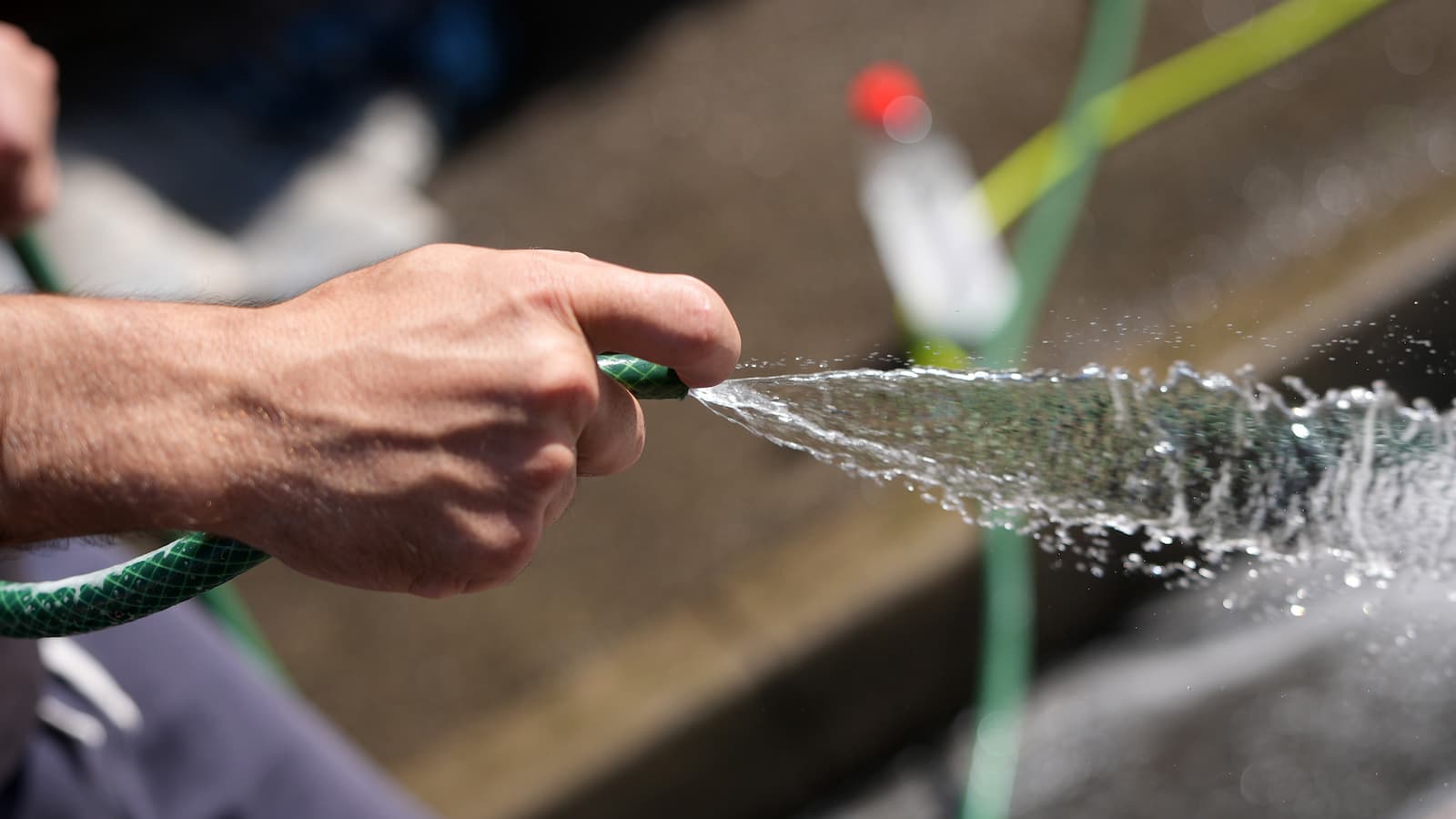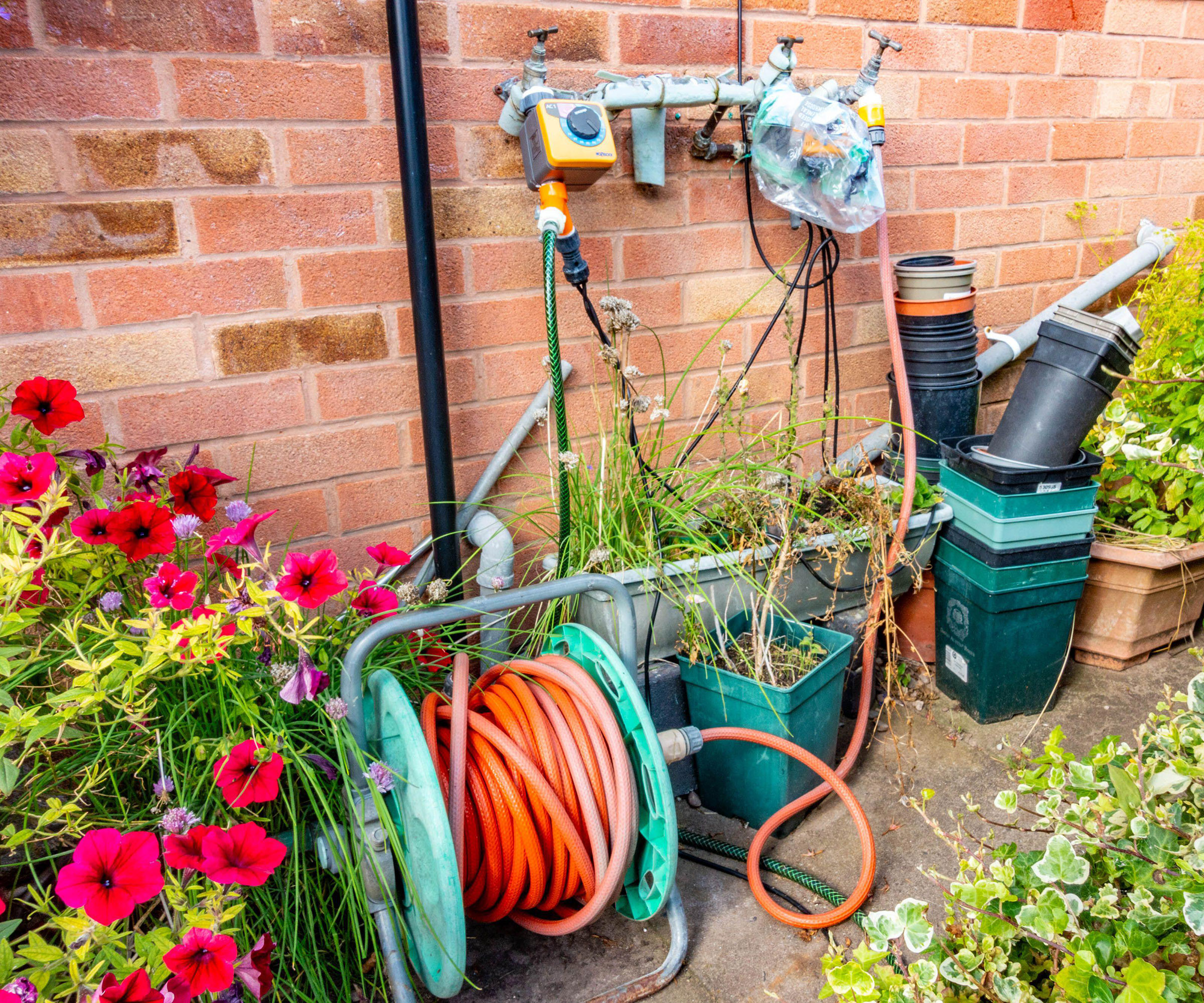Hosepipe bans begin with fines of up to £1,000 — and more could follow soon
With South East Water, Yorkshire Water and Thames Water enforcing hosepipe bans millions of households face restrictions and fines as the UK endures one of its driest years in over a century

Bring your dream home to life with expert advice, how to guides and design inspiration. Sign up for our newsletter and get two free tickets to a Homebuilding & Renovating Show near you.
You are now subscribed
Your newsletter sign-up was successful
Hosepipe bans are returning as water companies battle falling reservoir levels and record demand across England.
South East Water, Yorkshire Water and Thames Water have already introduced restrictions, with others warning they may be next unless weather patterns shift.
As pressure builds on supplies, millions more could soon be forced to start saving water or else face potential fines.
What hosepipe bans have been put in place?

More than 2.5 million customers across Yorkshire, Kent, Sussex, Oxfordshire, Gloucestershire, Wiltshire, Berkshire, Hampshire, and the Isle of Wight, are or will face hosepipe bans.
The decision follows “record levels” of demand during weeks of warm, dry weather, with usage spiking at 680 million litres a day - far above the summer average.
“If we don't put a hosepipe ban in place now, there's a really high risk of customers experiencing widespread issues such as low pressure or no water,” a South East Water spokesperson said.
Yorkshire Water was the first company to act, announcing a ban in early July.
Bring your dream home to life with expert advice, how to guides and design inspiration. Sign up for our newsletter and get two free tickets to a Homebuilding & Renovating Show near you.
“We need to take action now to help conserve water and protect Yorkshire’s environment,” said Dave Kaye, director of water at Yorkshire Water. “With more dry weather forecast in the coming weeks, our stocks will likely continue to fall, so we need to act now to maintain clean water supplies and long‑term river health.”
Violating the bans could result in fines of up to £1,000 under Section 76 of the Water Industry Act 1991 where water companies can impose Temporary Use Bans (TUBs) and fine households accordingly.
More restrictions likely as East and West Midlands issue warning
The East and West Midlands, recently declared drought zones, may see hosepipe bans soon if rainfall doesn’t arrive.
The Environment Agency says companies there “may need to implement further drought measures, including more Temporary Use Bans”.
The Environment Agency has also now declared a state of Prolonged Dry Weather across large areas of Oxfordshire, Berkshire, and Surrey, after rainfall in the Thames region fell to just 50% of the seasonal average over the last three months. Demand on 30 June peaked at levels not seen since the 2022 drought.
Is a hosepipe ban coming to your area?
Whether your area will face a ban next depends on three key factors: local reservoir levels, customer demand, and short-term rainfall.
With climate extremes becoming more common, water firms are warning that restrictions could become a regular summer feature.
South East Water has already said it is “closely monitoring” conditions in its Western region, including Surrey, Hampshire, and Berkshire, where further action may be needed.
Matt Gable, Environment Agency’s Regional Incident Lead, stated: “In the Midlands, we are taking action to reduce that impact and to oversee the actions water companies need to take to secure public water supplies.”
A Severn Trent spokesperson said: “Severn Trent hasn’t had a hosepipe ban for over 30 years because we know just how important it is for our customers.
"We want to reassure our customers that we’re doing everything we can to keep the water flowing, [but] we can’t escape how hot and dry it is, and how little rainfall we’ve had this year."
Severn Trent East are appealing to households to take water-saving measures immediately to conserve water, which can also help with water bills.
So if you’re wondering whether a hosepipe ban is coming your way - chances are, if it hasn’t already, it might be soon.

News Editor Joseph has previously written for Today’s Media and Chambers & Partners, focusing on news for conveyancers and industry professionals. Joseph has just started his own self build project, building his own home on his family’s farm with planning permission for a timber frame, three-bedroom house in a one-acre field. The foundation work has already begun and he hopes to have the home built in the next year. Prior to this he renovated his family's home as well as doing several DIY projects, including installing a shower, building sheds, and livestock fences and shelters for the farm’s animals. Outside of homebuilding, Joseph loves rugby and has written for Rugby World, the world’s largest rugby magazine.
